I've been using Linux for a quarter of a century, so why do I keep coming back to Ubuntu?
“Shall I compare thee to a summer’s day?”
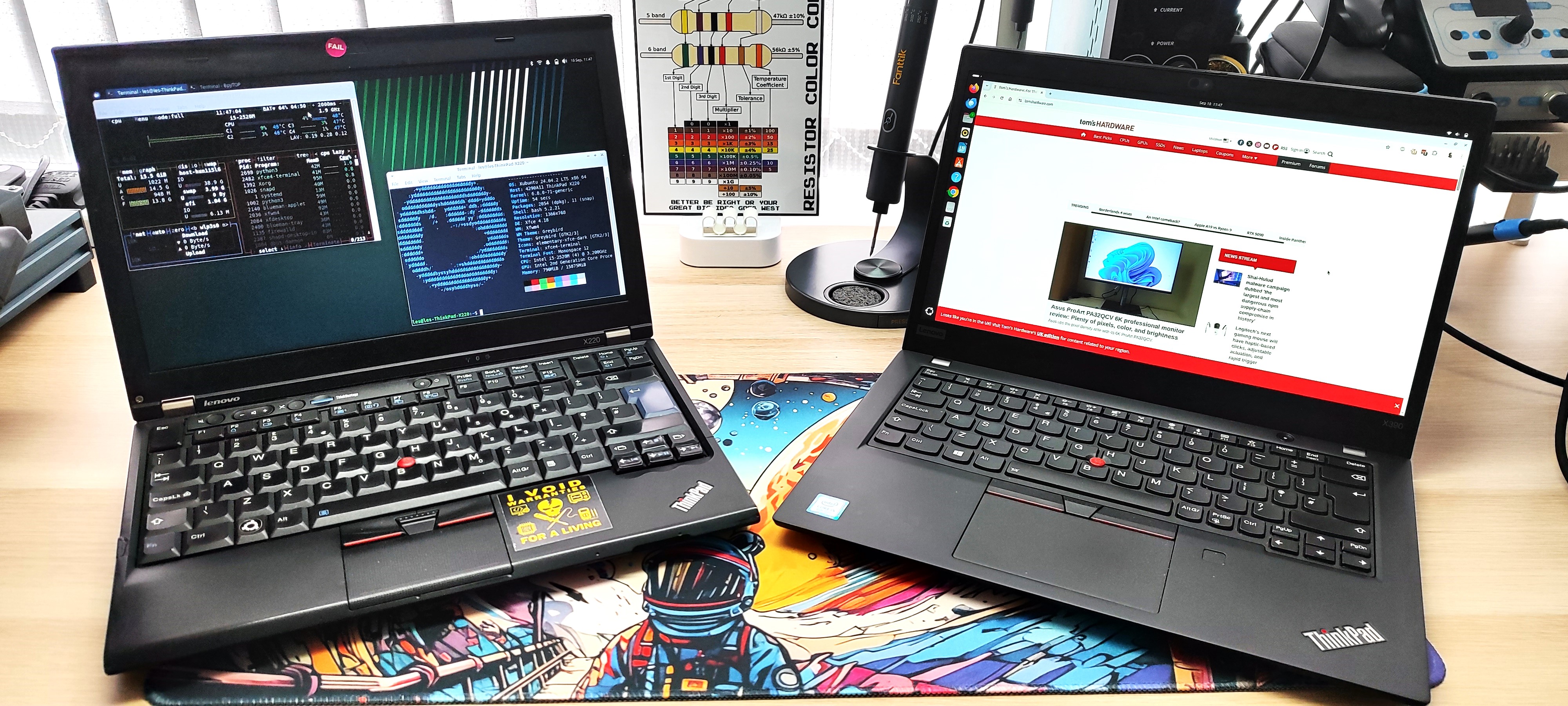
It scares me to say this, but I have been using Linux for a quarter of a century! Long before the Raspberry Pi was my main hobby, installing Linux on a myriad of devices was my jam. From the early days, when an AMD K6-2 333 and 128MB RAM powered my initial exploration of the world of Unix and Linux, to today, which sees Linux running on my Ryzen 5600X system, a Raspberry Pi laptop, and my beloved Steam Deck.
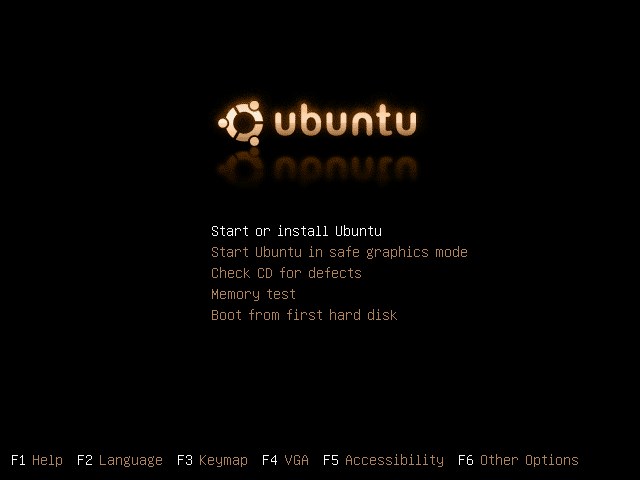
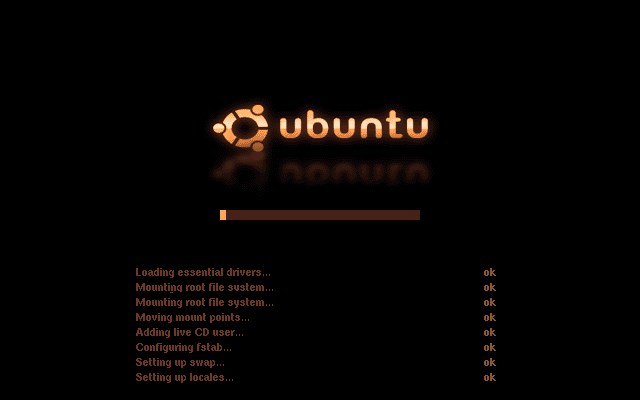
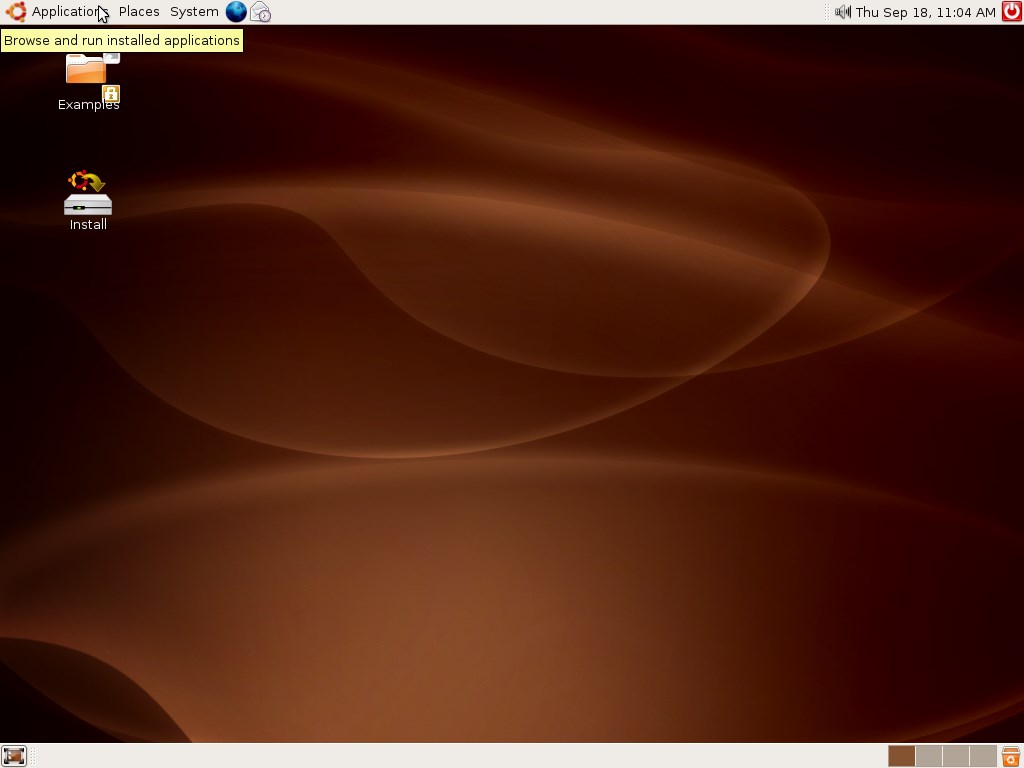
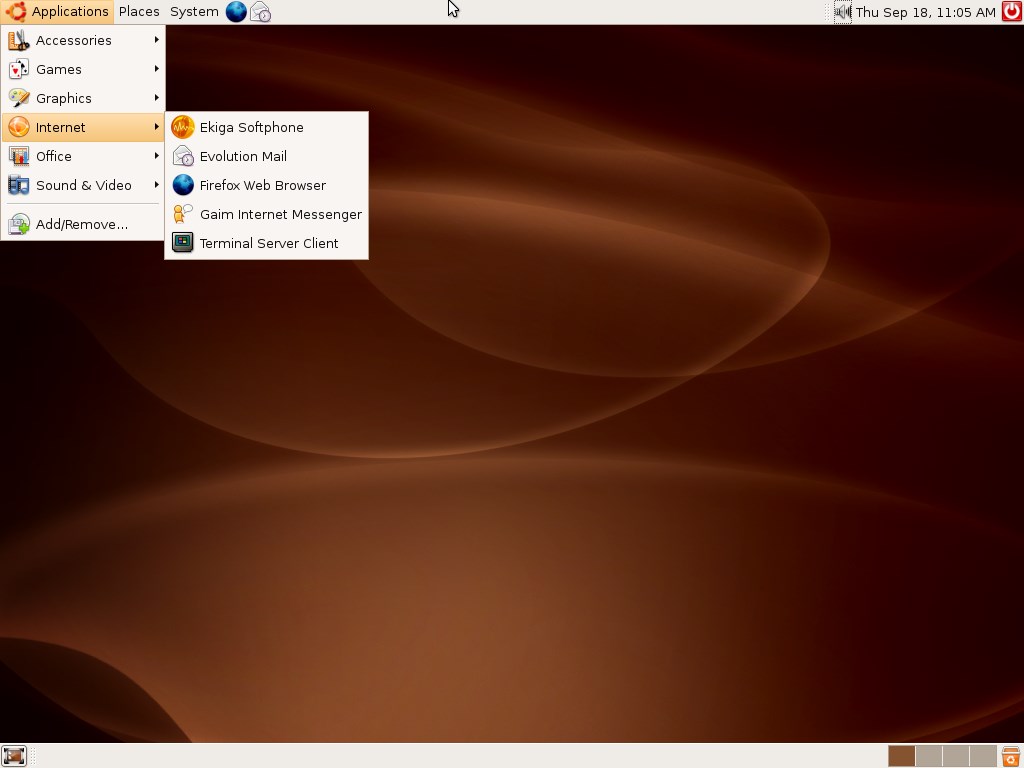
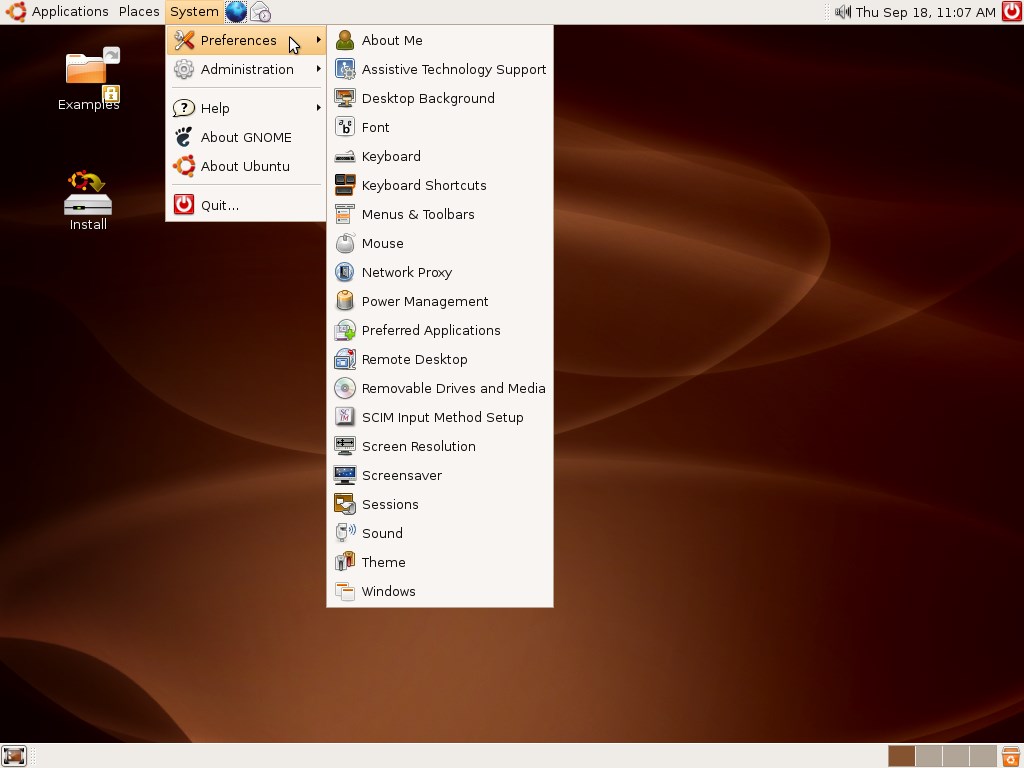
In those 25 years, I have tried many different Linux distributions; in fact, here is a list of distros that I have used over the years. This list is not exhaustive, because I reviewed a lot of Linux distros for Linux Format magazine.
- Corel Linux
- Mandrake Linux (Mandriva)
- Open Suse / Suse Linux
- Ubuntu (2006 onwards)
- Debian
- Crunchbang Linux (Debian)
- Fedora
- Manjaro
- Arch
- MX Linux
- Bodhi
- Raspberry Pi OS
- Armbian
- DietPi
- AnduinOS
- Bazzite
- CachyOS
- Linux Mint
- ZorinOS
The keen-eyed amongst you will spot that the majority of these distros are Debian-based. Yes, I prefer Debian-based distros, chiefly because I know apt rather well. But I can confidently use Fedora, or Arch (Aur) based systems too. So with all this confidence, why do I keep coming back to Ubuntu? Well, it boils down to a few reasons.
Ubuntu “just works”
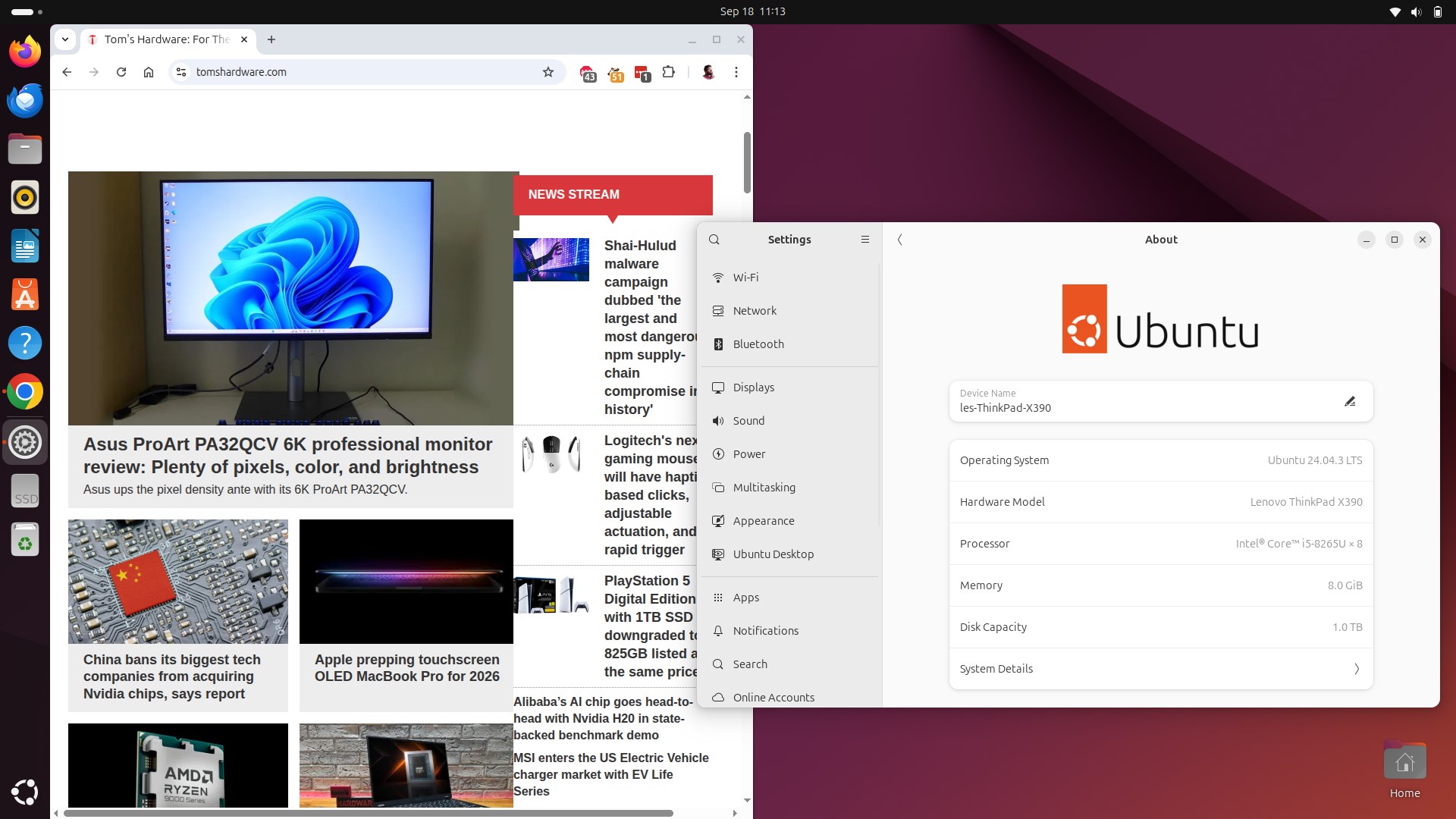
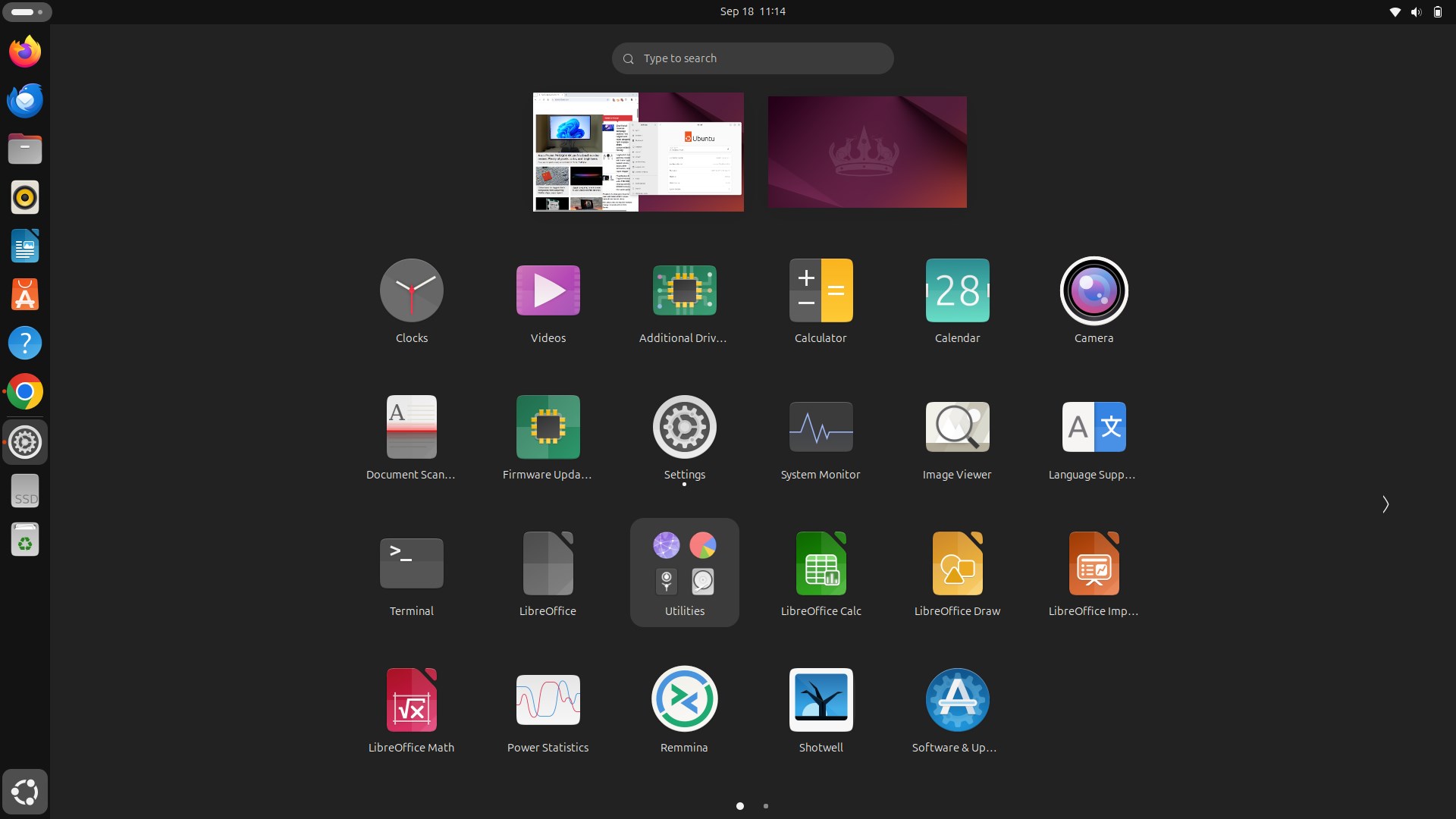
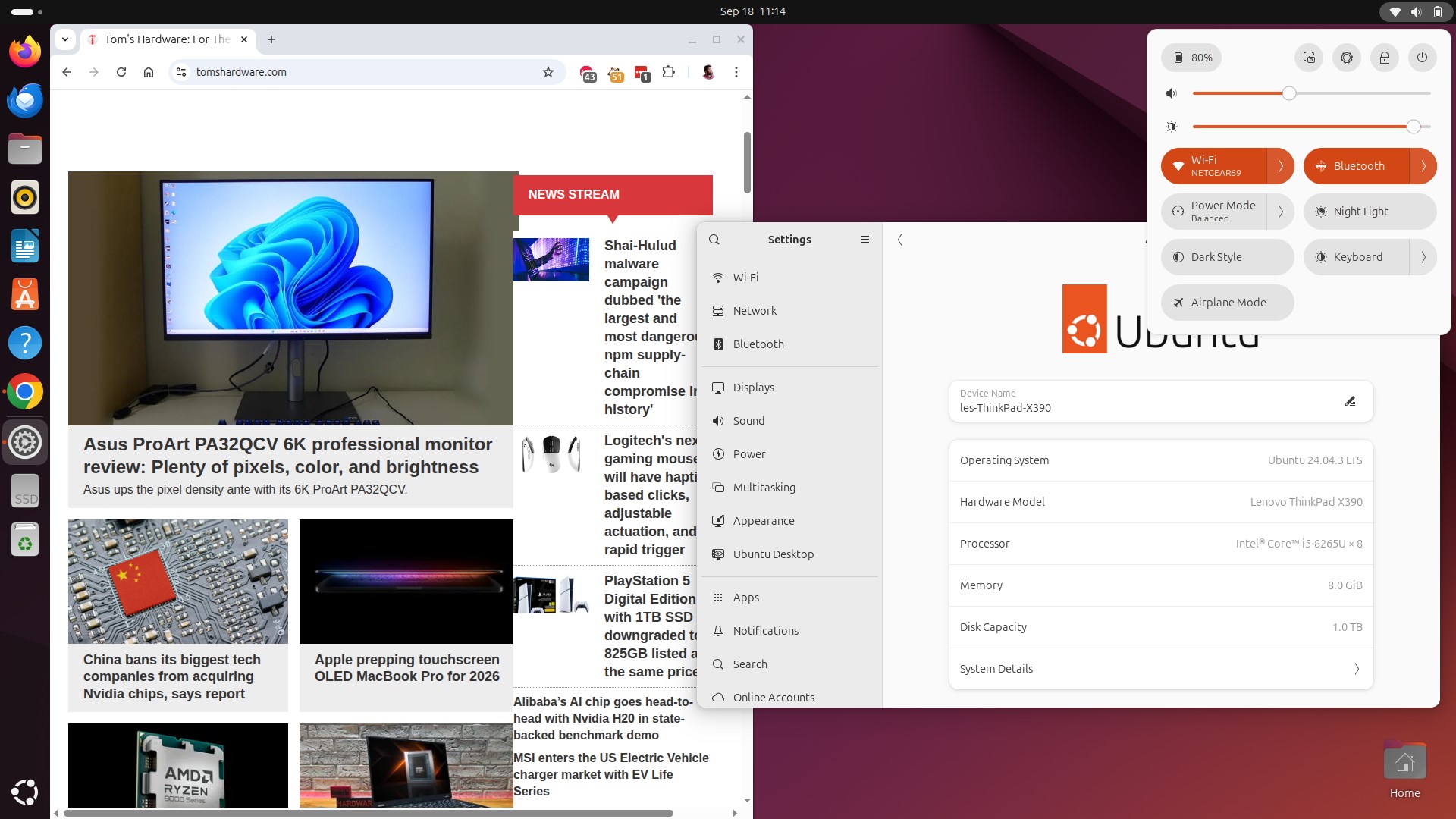
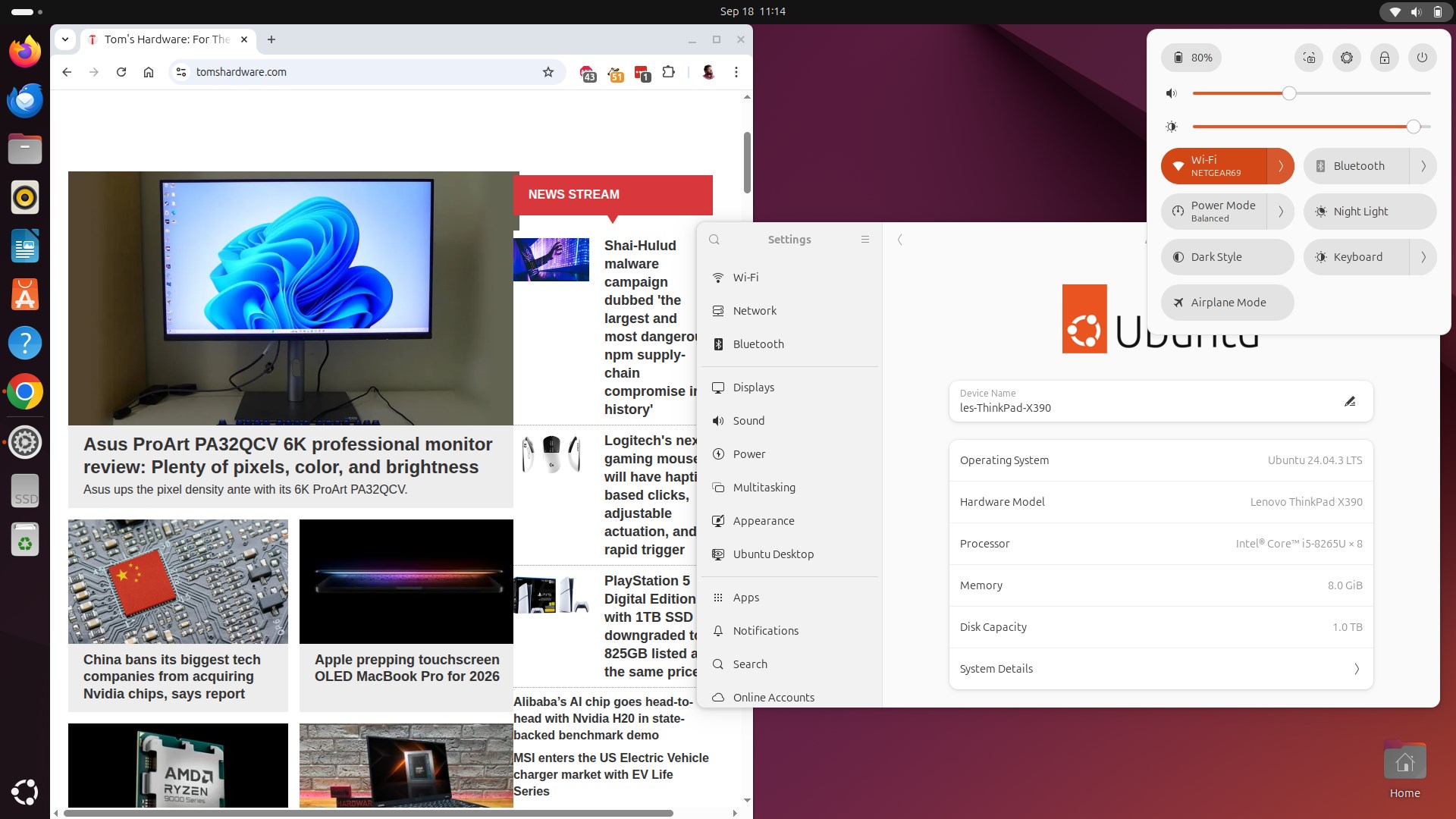
I’ve run Ubuntu on everything that I could. My laptops all ran it, something called an O2 Joggler (a rebranded OpenPeak device), which was a photo frame with an early Intel Atom CPU, also ran Ubuntu.
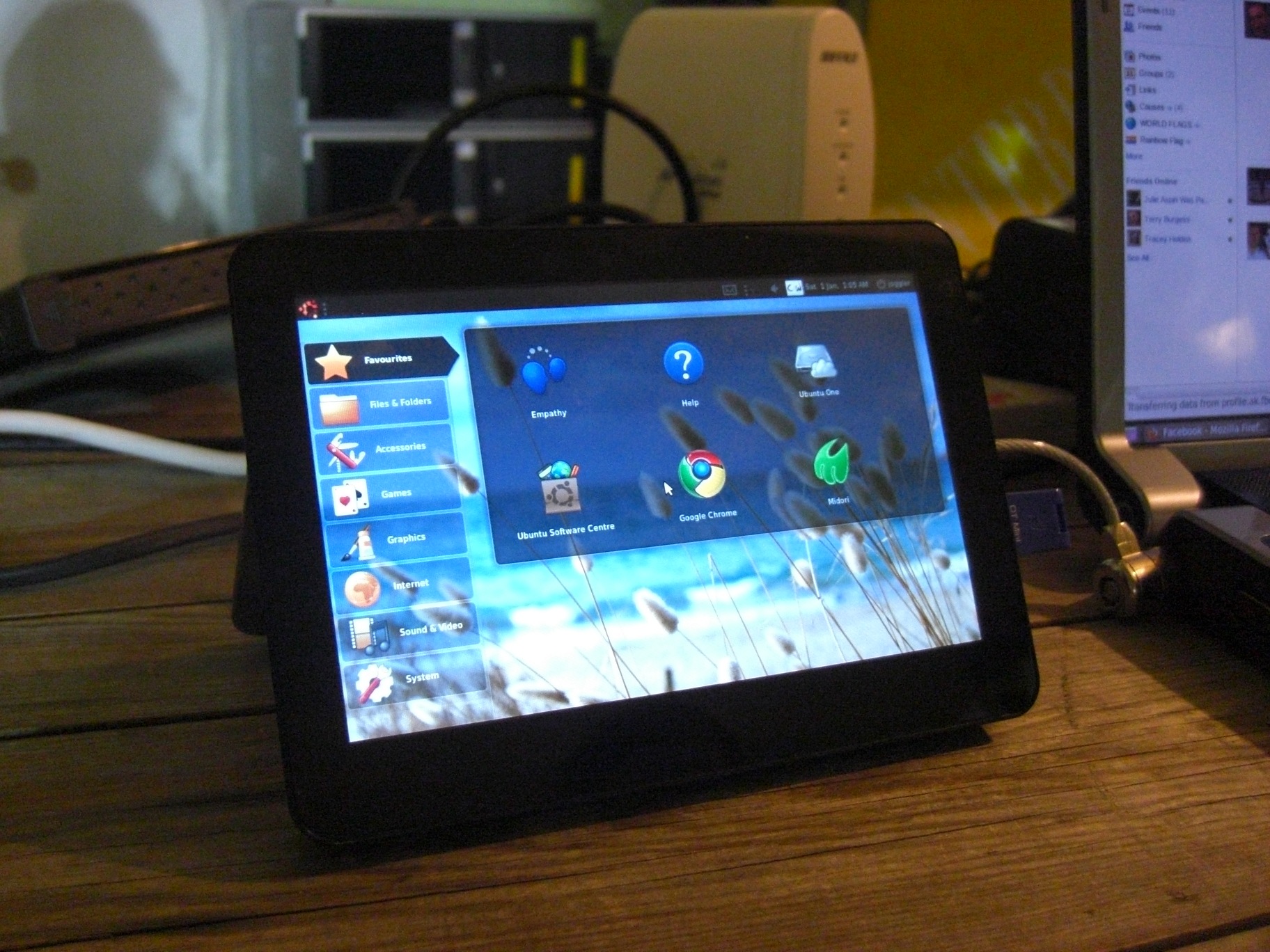
My Asus eeePC ran it for a short while, until I moved to Cruncheee, a version of Crunchbang Linux (Debian) for the eeePC. What links all of these devices is that Ubuntu just works. Sure, in the early days, some Wi-Fi cards and obscure hardware forced me to tinker in the terminal, but in recent years, I’ve not had to delve into the terminal to fix a critical issue. For newcomers and those who prize reliability over the “bleeding edge”, Ubuntu is hard to beat. I can drop my nearly 70-year-old dad in front of Ubuntu, and he can use it easily. It just works.
Ease of use, no matter your level of knowledge
That leads me nicely into this section, and Ubuntu’s ease of use spans the gamut of users.
Linux is often seen as the difficult and, dare I say, “nerdy” OS choice, and typically those attracted to Linux are more computer-savvy than others. However, Linux is open to everyone. Ubuntu is proof of that. From my perspective, Ubuntu offers the ease of use that macOS provides, but without the walled garden that Apple promotes. Ubuntu is free, and it works on older hardware. The installation process has been streamlined, particularly over the last couple of years, with a redesign and tweaks to reduce friction for new users.
Get Tom's Hardware's best news and in-depth reviews, straight to your inbox.
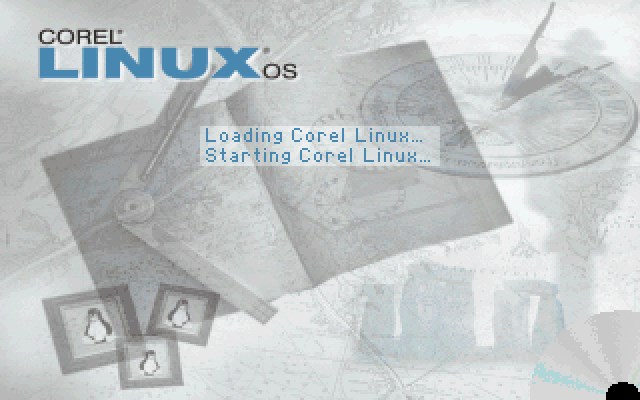
I recall installing Corel Linux and Mandrake Linux (now known as Mandriva) back in the early 2000s. They both had a great installer for the time. Remember, this was a time when the installer would scrutinize your system and ask you to make every decision along the way (including writing a custom X.org file), which would scare some from trying. I mention Corel Linux (a Debian-based distro) because that was the first Linux distro that worked for me. The installer felt, dare I say it? More Windows than Linux, and for someone moving over, it was easier to use.
Corl Linux was great fun, and the CDE (a variant of KDE) user interface was similar to Windows of that era, so not too much for me to learn. Corel Linux just gave me a basic install, not too many apps to choose from, but enough. Unlike the time that I downloaded Mandrake Linux (two days to download two CDs!) and chose to install everything. The app menus were rammed full of stuff that I had no idea about.
I loved Mandrake Linux. It felt great and worked well on the hardware of the era. However, I tried a few out, and some, like the KDE CD burning tool K3B, stuck and became a favorite.
The choice of flavors
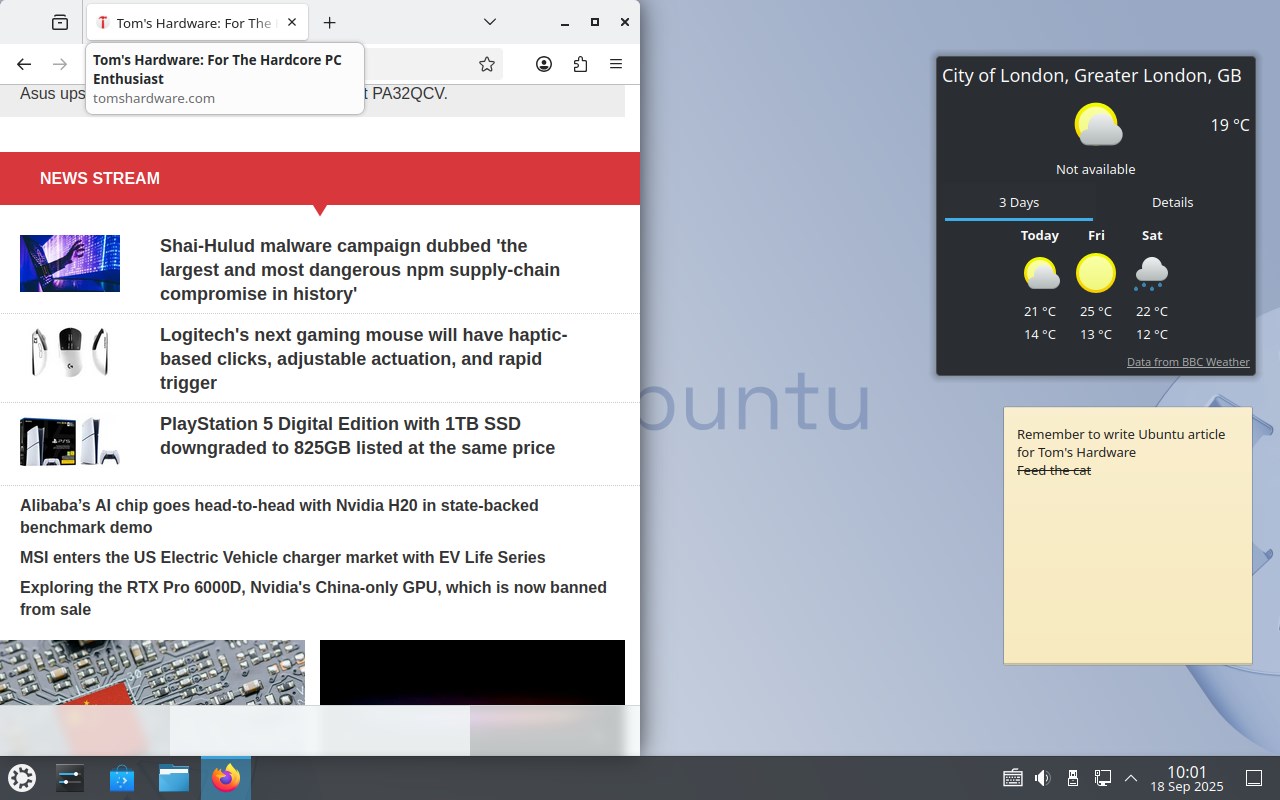
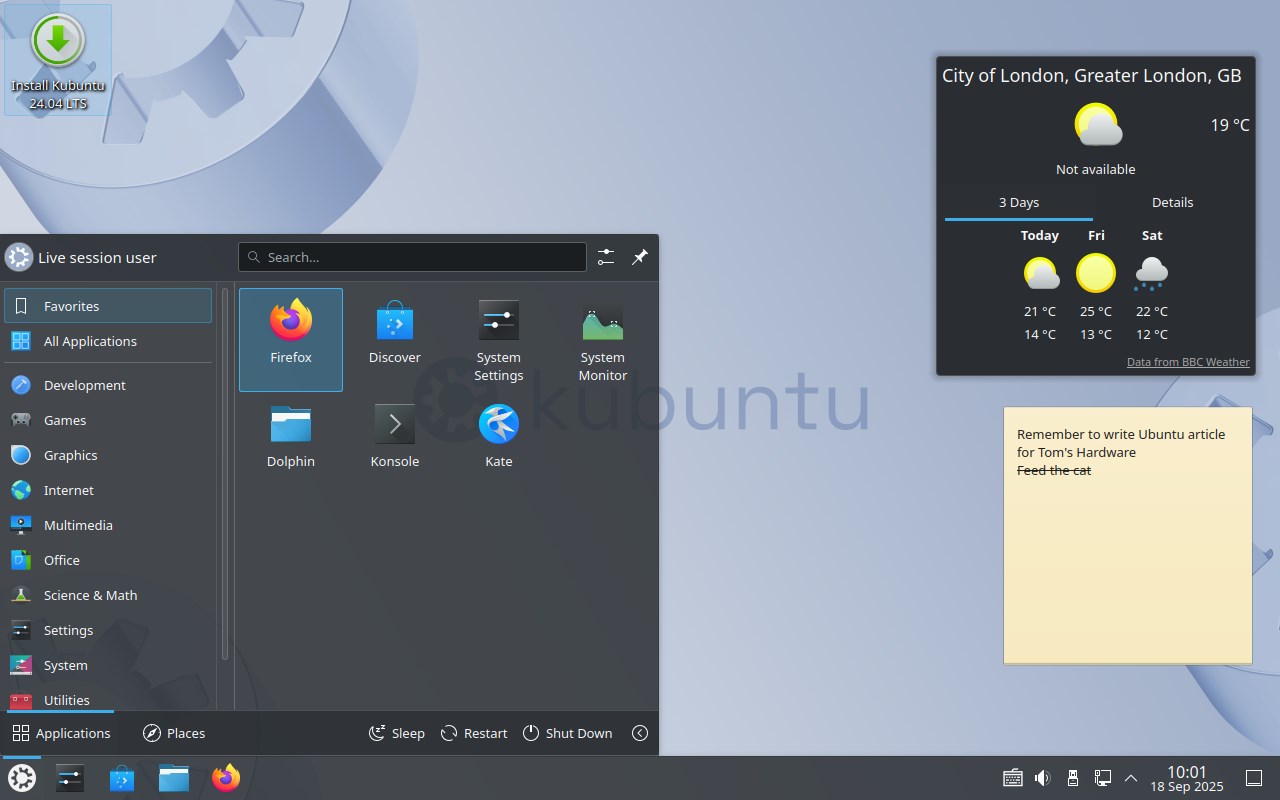
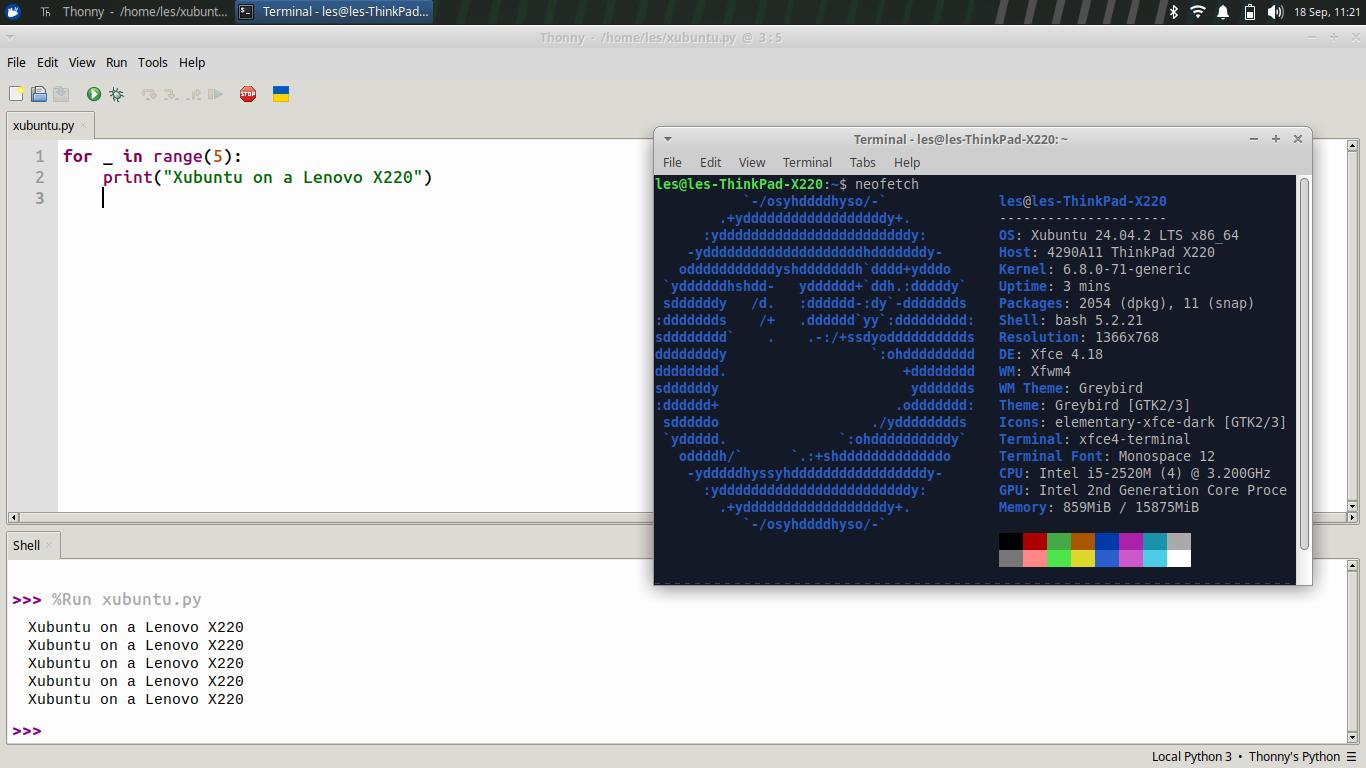
Linux, at its most basic level, is all about “choice.” You can choose your distro, your window manager, desktop, apps, and more. Where Ubuntu, well, actually the Ubuntu community, does things a little differently is in the flavors of the OS. Each flavor, be it official or community-maintained, has “buntu” in its name.
Flavor | Desktop Environment | Best For |
|---|---|---|
Ubuntu | GNOME | Newcomers |
Kubuntu | KDE Plasma | Newcomers / General Use |
Xubuntu | Xfce | Low spec machines |
Lubuntu | LXQt | Low spec machines |
Ubuntu MATE | MATE | Low spec machines / users who prefer older GNOME UI |
Ubuntu Budgie | Budgie | Low spec machines |
Ubuntu Studio | KDE Plasma | Creators |
This makes them easily identifiable to the end user. Sure, there are other distros based on Ubuntu that put their own name and spin on things (Pop! OS springs to mind), but the above list are the Ubuntu distros that many think of. I’ve also placed some suggested use cases for each distro, but ultimately that choice lies with you.
If I wished, I could install Ubuntu and then install another desktop environment, all via the software center or the terminal. In the past, I used to install Ubuntu and then install KDE. Now I just install Kubuntu and enjoy the KDE Plasma user interface.
Great documentation
Good documentation is what every project needs, and Ubuntu sets a high standard for documentation. If you were to Google “How can I change directory in a Linux terminal?”, chances are that you will get an answer that refers to Ubuntu. Either a direct Canonical / Ubuntu-backed document or something from a forum post. Ubuntu has been around so long now that it permeates the search results. Raspberry Pi is also doing the same thing, which I love to see!
The official Ubuntu documentation is excellent and covers trivial and technical issues with clarity. However, the unofficial documentation is also top-notch and provides knowledge for those uncommon issues, particularly when using applications not provided by Ubuntu.
As somebody who has over a decade of experience writing and editing technical documentation and tutorials, I really appreciate good documentation.
“You’re just an Ubuntu fanboy!”
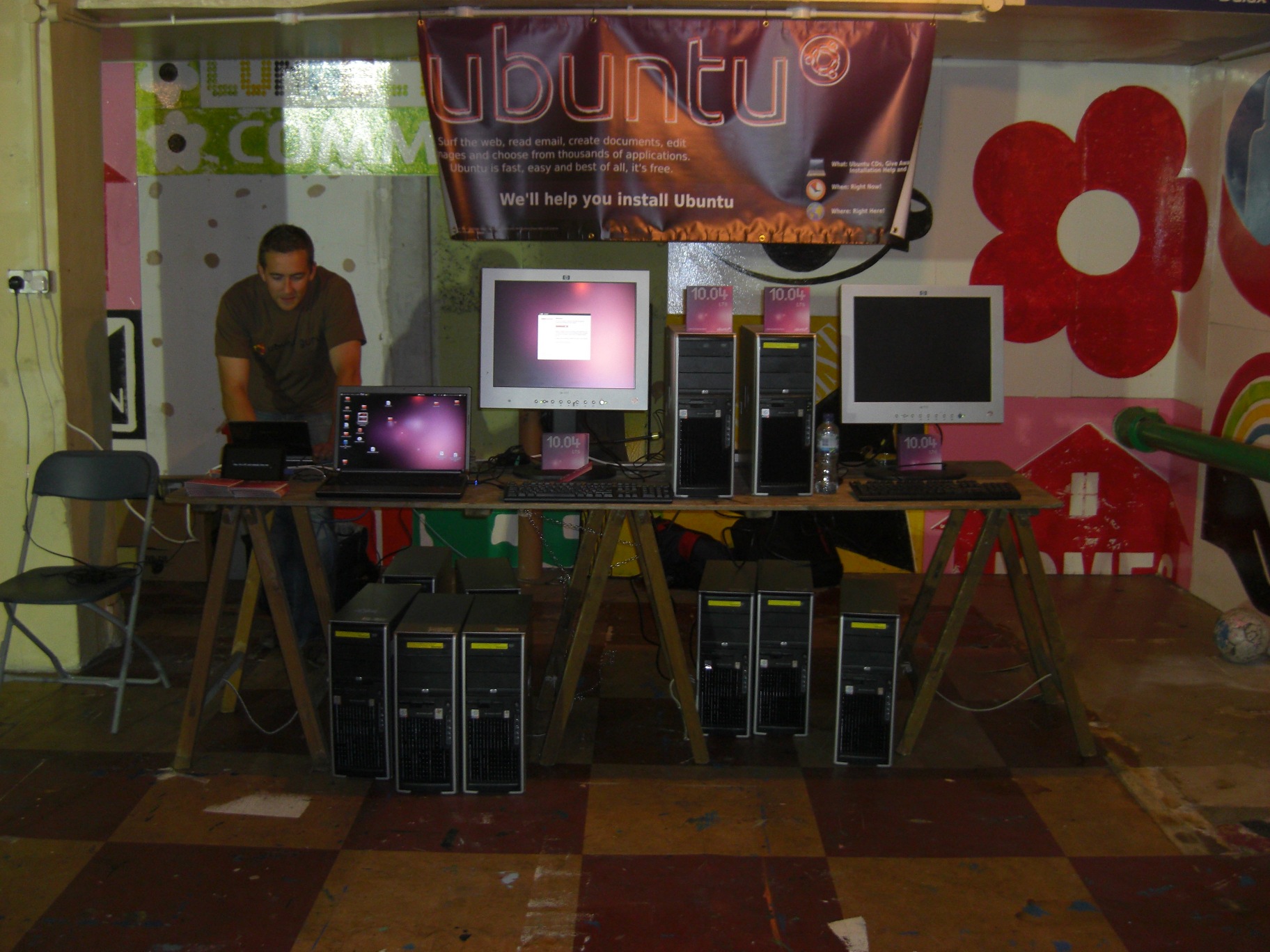
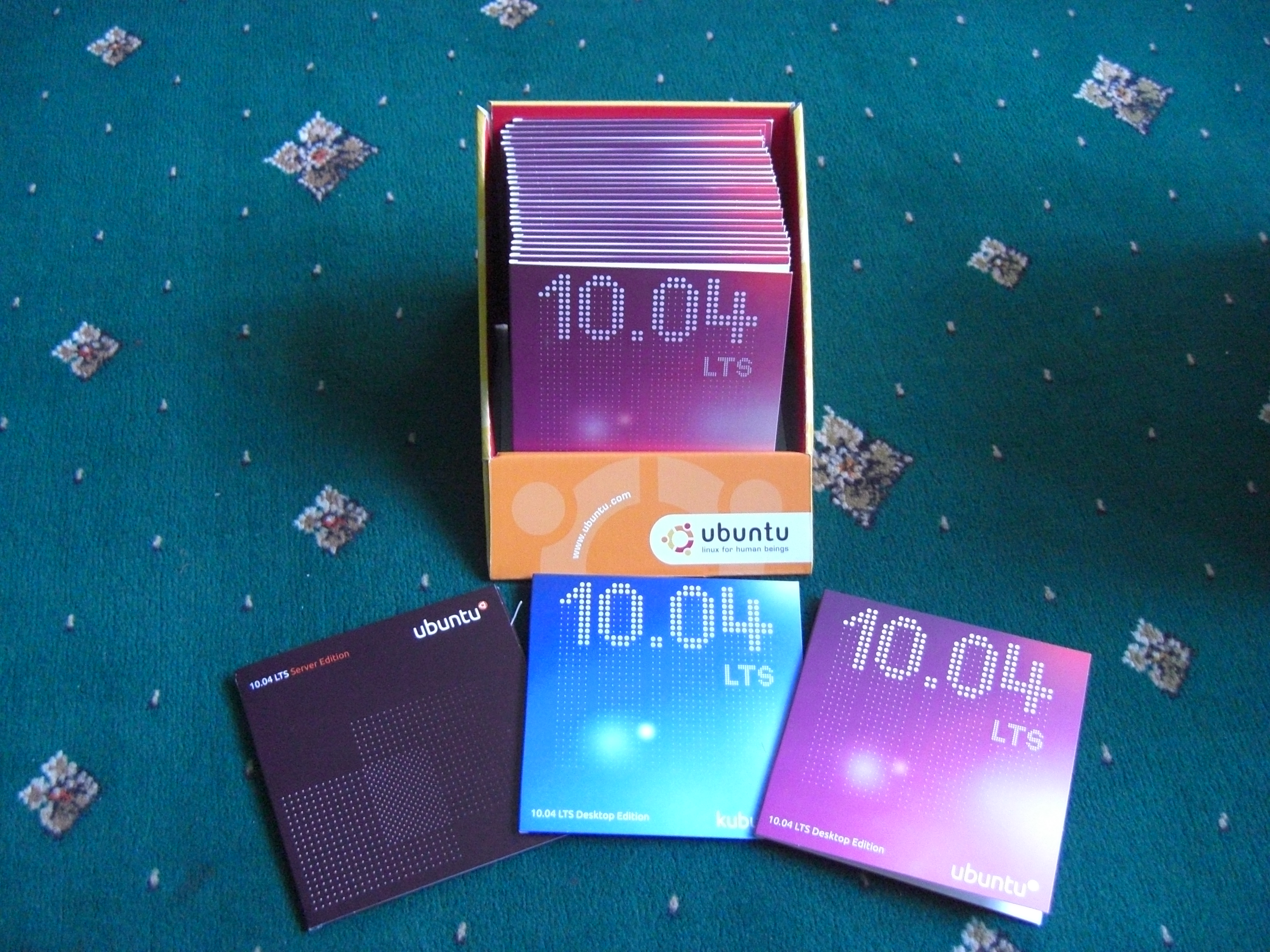
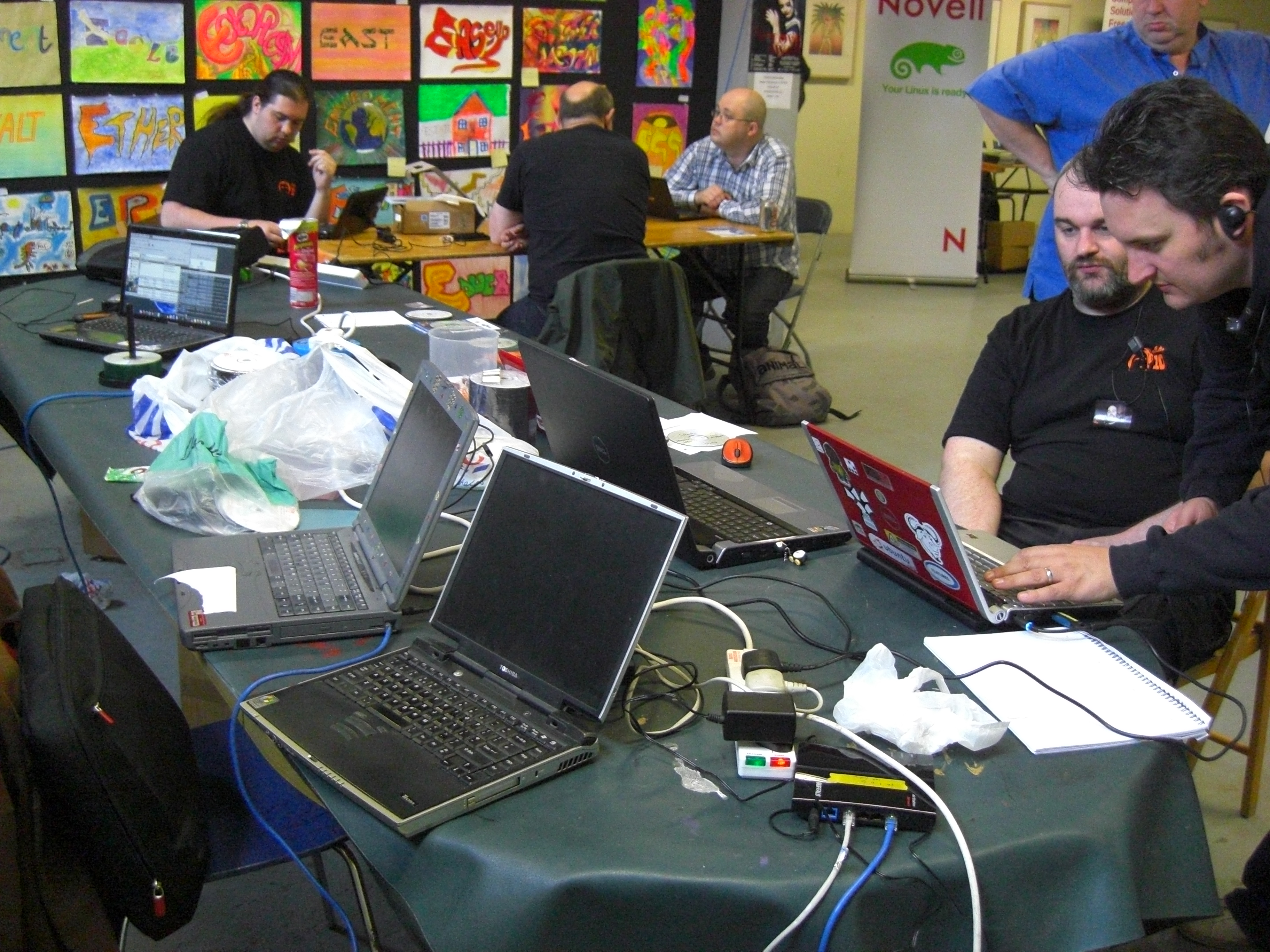
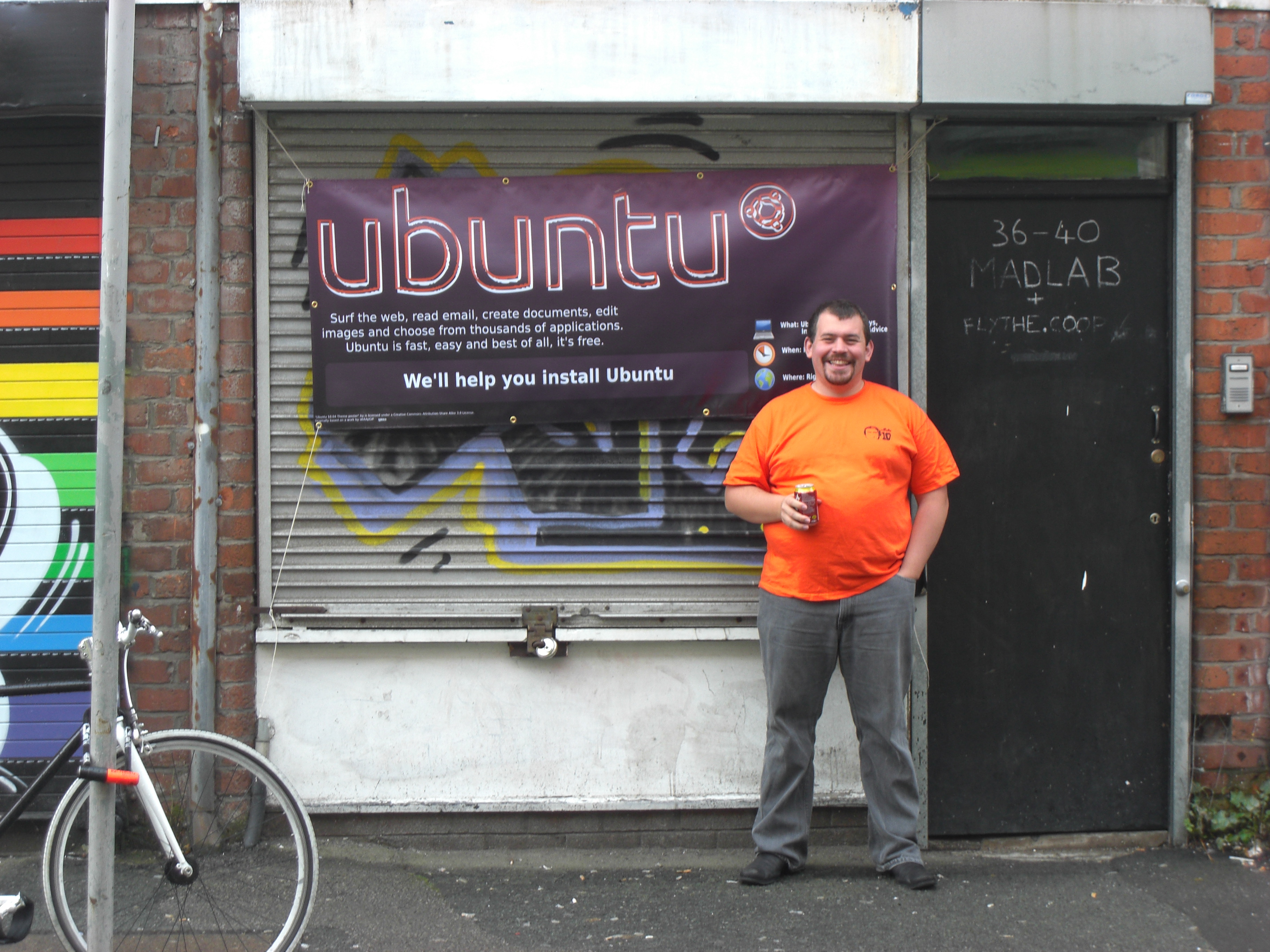
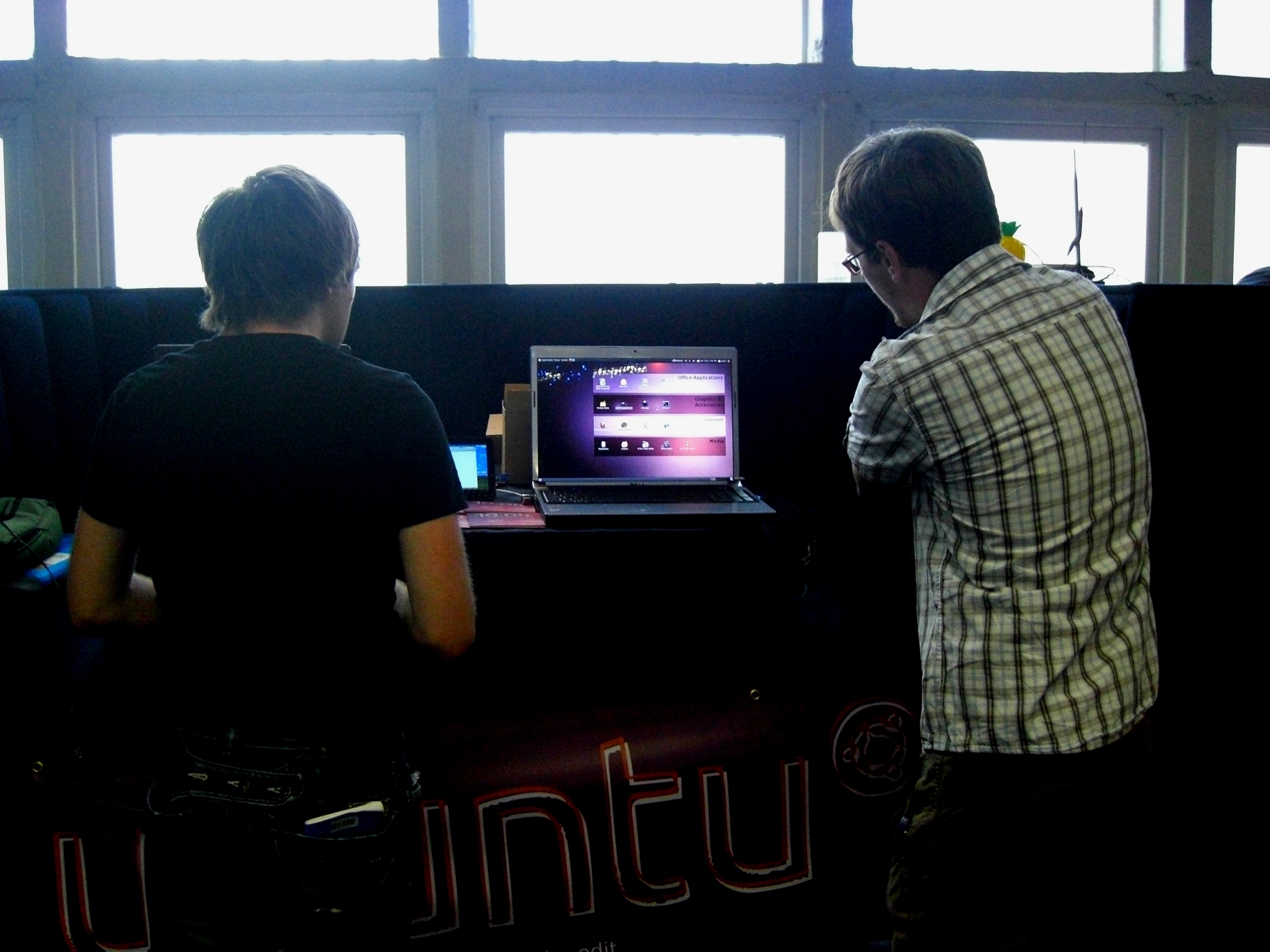
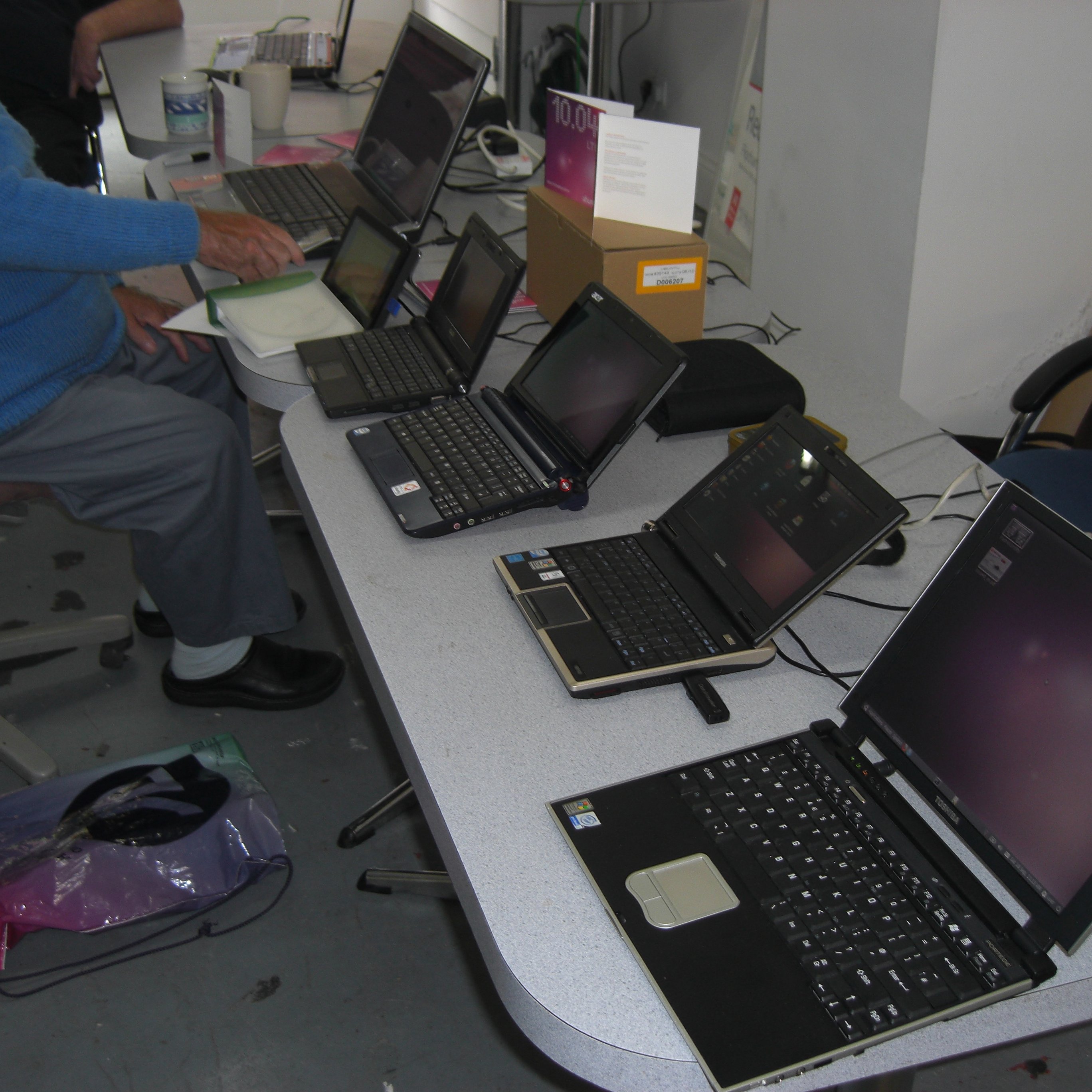
I’ll support any cause that aims to open up computing to everyone. Free/libre software has proven itself to be used in science (NASA, CERN, ESA), technology (waving arms around to mime “Internet”), entertainment, etc. Why pay for an operating system when you can get a great one for free?
My recent Bazzite experiment has proven to me that Linux is now a capable gaming platform, and yes, I already own a Steam Deck, so I should’ve realised. But using a 4060Ti and 12th-gen Intel system to game is a bit different from what the Steam Deck can offer, and it has a bigger impact.
Digging into my personal history with Ubuntu, and in the early 2010s, I ran installfests at locations as diverse as Barcamp Blackpool, Oggcamp, and a disused paint warehouse in the center of Liverpool. I also co-created UCubed, an Ubuntu-centric unconference which later became the genesis for the Raspberry Jam movement, thanks to Alan O’Donohoe, who used UCubed as a template for the worldwide Jam movement.
Nobody at Canonical paid or asked me to do that. I felt that, after using Ubuntu for many years and being part of a larger tech community that included numerous software developers and system administrators, I had to give something back.
Wrapping Up
You may not agree with me, heck, I love that you will probably comment about “Why distro X is better than Y!” and “GNOME sucks, I use Openbox!” but this is just my opinion, based on experience and life events that have ultimately shaped how I use Linux. Your journey will be different, and so will your choices. I respect them all and urge you to continue your Linux journey.

Les Pounder is an associate editor at Tom's Hardware. He is a creative technologist and for seven years has created projects to educate and inspire minds both young and old. He has worked with the Raspberry Pi Foundation to write and deliver their teacher training program "Picademy".
-
Bruce Benson I've used Ubuntu for years on my virtual servers and personal PC. Now when I spin up a new server I'm using Debian. On my PC I moved to LinuxMint and now recently to opensuse. I can't really pin down all the reasons for the move, but Ubuntu was always missing something I needed or wanted. I'd look for distributions that 'just worked' and Ubuntu did that less and less with time. It was easier to fire up a new distribution than to get Ubuntu to do what I wanted (boot from btrfs subvol for example).Reply -
93QSD5 From my past exp. Ubuntu will always cause unnecessary weird Ubuntu-specific issues down the road.Reply
I've never been able to run ubuntu cleanly for prolonged periods of time in the past decade+.
Debian on the other hand always delivered, never caused package conflicts or debian-only issues that causes you to burn your hair out of frustration. -
Hekkaryk Ubuntu (obviously, only LTS releases) has been a first distro of choice for me for as long as I've been using Linux as a primary OS. The only exception I have is Fedora KDE, which is worse for anybody new by miles (shorter release support, missing media codecs you have to install manually, multiple GBs of updates daily) but Kubuntu refused to cooperate with that hardware. I've tried many distributions but the "it just works" and "it's fast easily" are really hard to beat. openSUSE required a lot more careful tinkering with manually installing media codecs than I've realized and far less Steam games ran at all. Debian was an uphill battle from the very start, with first challenge being finding the right ISO to have any semblance of drivers, then next hurdle arriving in installer with archaic su setup and web browser that would not open and missing apt sources. Kubuntu was great till 24.04 when it decided it's acceptable to start only half the time. Xubuntu missed multi monitor shortcuts in past. Mint was the greatest offender, as it was my first Linux distro that crashed and burned so bad after first regular security update that I gave up on Linux for a decade. Arch is a distro by Arch maintainers, for Arch maintainers.Reply -
93QSD5 Reply
Funny, I had the opposite exp.Hekkaryk said:Ubuntu (obviously, only LTS releases) has been a first distro of choice for me for as long as I've been using Linux as a primary OS. The only exception I have is Fedora KDE, which is worse for anybody new by miles
Ubuntu was a broken slop while fedora was the most solid, works ootb, experience I ever had with a machine.
Obviously this changed in the past years because everything that works just fine needs to be utterly destroyed for no reason... -
Hekkaryk Oh, quality of Fedora KDE is very, very high - it's just that it's less friendly for newcomers. If somebody go through with setup and has fiber/better self control not to install as many packages as me they will definitely be very happy.Reply
I've been through 2 major (version) upgrades of Fedora KDE, and apart from the fact it heavily encourages reading and using console, it's fine :) -
JayGau Ubuntu is the most user friendly. Almost everything works out of the box. Installing stuff like "drivers" (they are not called drivers, but modules on Linux) or even simple apps like Steam can be a pain on RHEL systems, while it is very easy on Ubuntu. And the support online is definitely focused on Debian based systems. It's even frustrating sometimes (you think you found a solution to your problem before realizing that it only works on Debian).Reply -
CajunMoses Reply
F42 is very good. And F43 is looking like it will be even better in many respects. I'm new to Linux though. And my only impression on Ubuntu comes from installing Snap packages on Fedora. That hasn't given me a very favorable impression of Ubuntu.93QSD5 said:Funny, I had the opposite exp.
Ubuntu was a broken slop while fedora was the most solid, works ootb, experience I ever had with a machine.
Obviously this changed in the past years because everything that works just fine needs to be utterly destroyed for no reason... -
93QSD5 Reply
Do yourself a favour and move away from snap/flatpacks and gui stores or whatever else.CajunMoses said:F42 is very good. And F43 is looking like it will be even better in many respects. I'm new to Linux though. And my only impression on Ubuntu comes from installing Snap packages on Fedora. That hasn't given me a very favorable impression of Ubuntu.
Use your distros package manager. -
ezst036 Reply
The terminal is the past, it is not the future. Additionally, distro packaging is the root source of the toxic poison of fragmentation.93QSD5 said:Do yourself a favour and move away from snap/flatpacks and gui stores or whatever else.
Use your distros package manager.
GUI and flatpaks and appimage and other unified singular install options are the future. Every install should work on every Linux without ever thinking about it. Just double click and then go; done; installed. Regardless of which Linux distro is being used. -
93QSD5 Reply
Funny way of saying GUIs are dying off for good.ezst036 said:The terminal is the past, it is not the future. Additionally, distro packaging is the root source of the toxic poison of fragmentation.
GUI and flatpaks and appimage and other unified singular install options are the future. Every install should work on every Linux without ever thinking about it. Just double click and then go; done; installed. Regardless of which Linux distro is being used.
Matter of fact, guis are dying off so well, that newcomers have now resorted to tui development and showoffs a lot more.
Discover and all those other gui stores DO NOT WORK and never have. Not once has any of it worked flawlessly. The moment you install that same software manually the good old way, it works perfectly...a pattern emerges.
----------------
No they shouldn't work on any distro and it's good, that we have a seperation of our software pipelines.
Good luck getting a piece of software to work from your raspianOS or fedora to work on kali.
General solutions will die off because the volunteers are, literally, dying off. Too many people consume, too few produce.
It's gotten so lazy/bad to the point where people aren't even auditing the most fundamental software packages that hold the entire ecosystem alive!
The concept of Linux as a personal computer/deskgop doesn't need to become windows. It's okay to be a bit different and more difficult to get into.
At least it'll filter those out, who won't contribute or do their due dilligence in the first place.
Don't worry about those folks, there's always a safe fool-proof iOS/MacOS for them to play with.